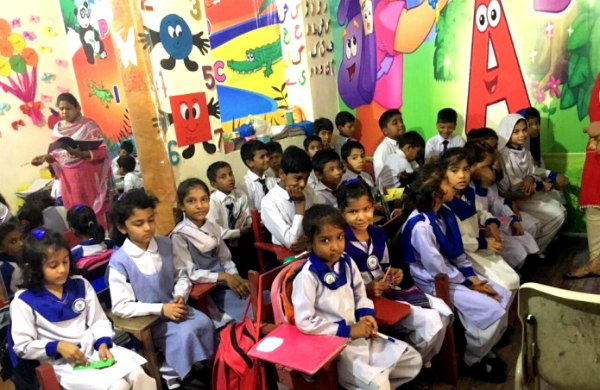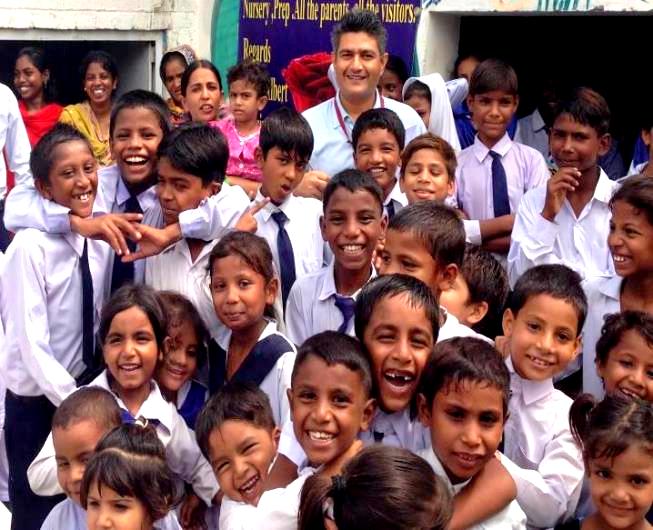 2019 marks ten editions of the European Microfinance Award, launched in 2005 by the Luxembourg Ministry of Foreign and European Affairs, as a biennial Award – the first of which took place in 2006, and after considerable interest and exposure, became annual after 2014. The Award serves two parallel goals: rewarding excellence, and collecting and disseminating the most relevant practices for replication by others.
2019 marks ten editions of the European Microfinance Award, launched in 2005 by the Luxembourg Ministry of Foreign and European Affairs, as a biennial Award – the first of which took place in 2006, and after considerable interest and exposure, became annual after 2014. The Award serves two parallel goals: rewarding excellence, and collecting and disseminating the most relevant practices for replication by others.
The Award’s influence and prestige has grown, and its €100,000 prize for the winner (and €10,000 for the runners-up), attracts applications from many organisations that are innovating in a particular area of financial inclusion. As well as the significant prize, an important additional benefit to winners is the exposure that they receive, and the opportunities for expansion and replication that the attention of the sector can provide.
To celebrate ten editions of the Award, e-MFP has decided to reach out to the previous winners, for a ‘where are they now?’ blog series, published in the order we receive them throughout 2019, to look at what they have been doing with their initiative since they won, and how the winning of the Award has helped, and what plans they have in store.
In 2016, the theme of the Award was Microfinance & Access to Education. Kashf Foundation of Pakistan won for Kashf School Sarmaya, or Kashf Education Financial Program (KEFP), a holistically designed credit facility providing access to finance to Low Cost Private Schools as well as a capacity building and training for teachers and school owners, and a training of trainers on Financial Education for Youth. The following is an edited interview with Kashf Foundation.
e-MFP: How has your initiative evolved since you received the Award? What have been the biggest changes?
Kashf: In November 2016, Kashf Foundation was recognised for its pioneering efforts in the education sector by the European Microfinance Award (EMA). The award was an acknowledgement of the unique and innovative work Kashf is doing in the low-income education sector in Pakistan. It is the only MFI in the country to offer an education finance product that actually twins access to finance with capacity building trainings for teachers and school owners. The initiative looks at education and supply side gaps holistically and is a customisable solution for a broad range of Low Cost Private Schools (LCPS). With the support of the EMA, Kashf has been able to train 6,786 teachers and 2,122 schools owners on improving the overall pedagogy of learning through better teaching styles, classroom and school management and tools to develop student centered classrooms for provision of 21st century education. Through this award, Kashf has also managed to deliver child safety and well-being trainings to 745 teachers and schools owners in the areas of Lahore and Kasur in order to equip children with the knowledge of preventive measures against child sexual abuse. The distinct program efforts have translated into impactful outcomes with teachers and school owners immediately implementing their learnings from the trainings. Improved management and quality of education have led to increased enrolment at these schools, resulting in improved business incomes for the school entrepreneurs. Development of enabling classroom environments, adoption of interactive teaching methodologies and increased awareness among children and parents on social issues such as child sexual abuse have been some of the substantial results of these capacity building trainings.
 e-MFP: What did winning the EMA mean to your organistion? Did anything change as a result of winning, both within the specific initiative for which you won and in the organisation more broadly?
e-MFP: What did winning the EMA mean to your organistion? Did anything change as a result of winning, both within the specific initiative for which you won and in the organisation more broadly?
Kashf: In order to better map the baseline data of the clients, Kashf revised its business appraisal forms for the Education Finance Program in 2017 to better gauge a client’s profile prior to disbursement. The assessment process of the entire school was previously done on a two-page document but with the support of the European Microfinance Award the appraisal form and data is now being collected digitally through tablets by business development officers. Furthermore, the earlier format assessed the school’s profile, student numbers, revenue, expenses, availability of resources etc.; with more focus on the income and expenditure of the client. However the revised process now contains detailed information on other factors such as grade level student enrollment and attendance, grade level fee acquisition, list of school’s asset and quality and comprehensive details of loan utilisation.
Such extensive appraisal creates a transparent and efficient system, which ensures that every loan is disbursed to the deserved beneficiary. Effectiveness is a vital component of Kashf Education Finance Program (KEFP) in order to ensure its progress towards achieving its objectives. The entire school assessment process conducted by Kashf is endorsed by the school owners and they often report that on many occasions these assessment results have proven to be more informative, relevant and effective for them to understand the current position of their schools and to develop new strategies on that basis. After the revision of the business appraisal process, Kashf Foundation has also conducted a Training of Trainers (TOT) of its existing field based operational staff, i.e. the Business Development Officers (BDOs), who are responsible for loan mobilization and disbursement, in order to train them on the digital procedure. A total of 1,210 BDOs have been provided such trainings.
The capacity building training modules for teacher and school owner training have been reviewed and updated by an independent education expert in the sector in order to ensure latest training techniques and styles have become part of the capacity building sessions. All the School Development Associates (SDAs) have then been trained on these training modules, through a Training of Trainers and then with additional regular refresher sessions in order to keep the trainers afresh on the training content. The revised module focuses on new 21st century teaching activities and methodologies in order to make the classroom environment more interactive and student friendly. It also aims to equip the teachers with new learning styles and effective strategies for classroom and student management.
With the support of the European Microfinance Award, Kashf has developed a teacher and school owner training on child safeguarding and well-being with the objective to provide them effective preventive strategies for child sexual abuse and know-how of building a safer environment for the children within schools and in their homes. Kashf considered it imperative to provide education to children on protecting themselves, engaging in safer a manner with strangers, distinguishing between good and bad touch and reacting to situations of abuse. This is a very sensitive and important topic especially in line with the rising number of child abuse cases in Pakistan; last year alone child sexual abuse cases have increased by over 20% and it is estimated that at least 10 children are sexually abused every day. It is of utmost importance to educate children from primary age on preventive measures of sexual harassment.
Kashf’s capacity building trainings have been focusing on educating teachers and school owners on how to make the children more aware about their relationships with their environment, at school and at home. The Financial Education for Youth curriculum also focuses on developing skills among children which help create empathy, enhance imagination and creativity and boost their confidence and independence.
e-MFP: Are you aware of any impact your initiative has had on other organisations?
Kashf: The European Microfinance Award 2016 significantly increased the credibility of the program. Kashf Foundation has been provided grant assistance by Pakistan Microfinance Investment Company (PMIC) to train 850 schools across Pakistan on the current and improved staff training program Kashf has been implementing under its Education Finance Program.
Kashf has also been invited by the Global Schools Forum to be a member of its platform. Global Schools Forum is a community of education entrepreneurs who are running and supporting innovative and inclusive schools in underserved markets. They have two types of members: Non-state schools and school networks serving low and middle-income families and organisations that support these schools to scale their impact. The vision of Global Schools Forum is a world where all children have access to quality education. The mission is to strengthen the non-state education sector in developing countries serving children from low-income backgrounds. They aim to do this by equipping the members to support and run quality non-state schools and by creating a more favourable policy and funding environment for non-state organisations to engage in education.
e-MFP: What do you see in the future for your initiative and for this area of practice more generally?
Kashf: Our goals for the period up to June 2022 are: 7,000 active loans to schools worth PKR 1,053,399,375 (USD 7.5m); providing school owner and teacher training to 22,500 additional participants; and providing child sexual abuse training to a further 11,200 participants.
The European Microfinance Award is jointly organised by the Luxembourg Ministry of Foreign and European Affairs, the European Microfinance Platform (e-MFP) and the Inclusive Finance Network Luxembourg (InFiNe.lu). For more information on the 2019 Award on "Strengthening resilience to climate change" , visit the Award website (closing date is 9th April).

Leave a comment